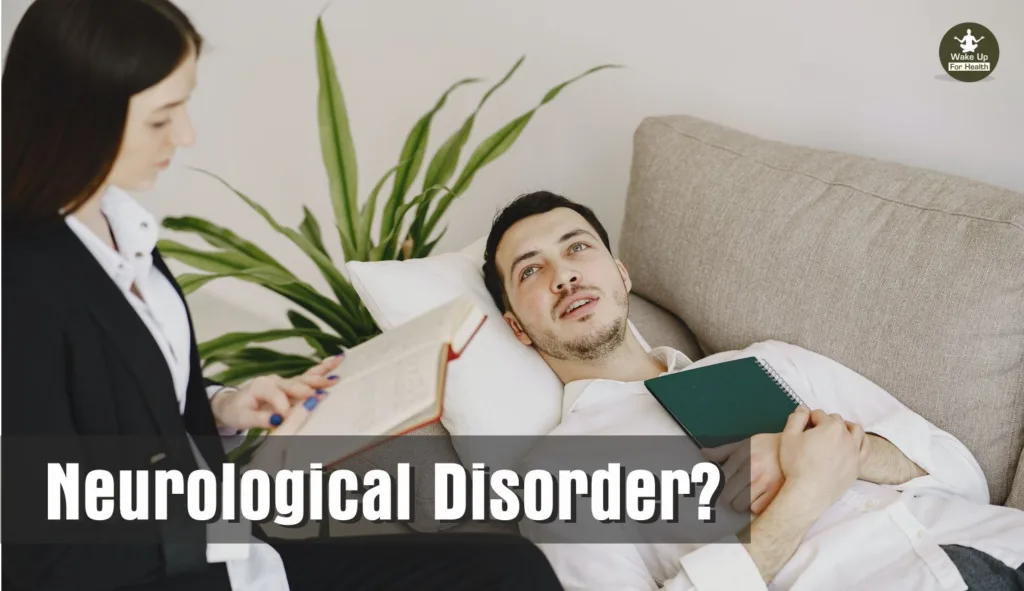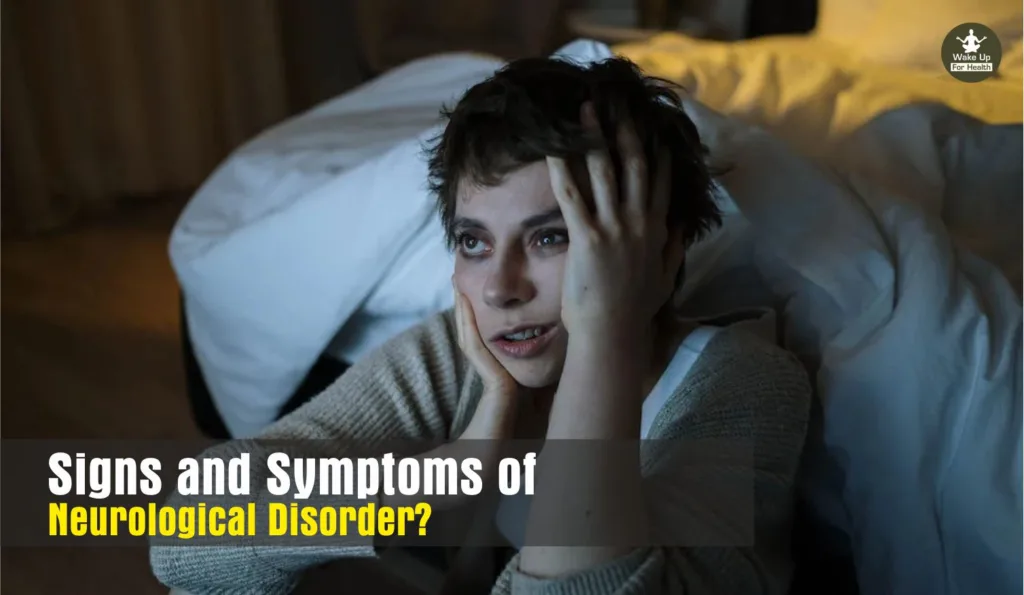Neurological Disorder Disease affects our peripheral nervous system. Let us tell you that the Brain, Spinal Cord, Cranial Nerves, Peripheral Nerves, Automatic Nervous System, Neuromuscular junction and muscles come in the peripheral nervous system. Neurological disorders mainly include Epilepsy, Alzheimer’s Disease, Dementia, Dtroke, Migraine, Headache, Parkinson’s Disease, Neuroinfection, Brain Tumor, etc. First of all, you need to know what is the relation between nervous system and neurological disorder?

The nervous system is made up of the brain, spinal cord and nerves. All these control all the functions of our body. If there is a problem in any part of a person, then that person has difficulty in speaking, breathing and moving.
Navigating Neurological Disorders
Neurological problems refer to conditions in which the brain, nerves, and spinal cord are adversely affected. There can be various causes which especially include genetic disorders, congenital abnormalities, infections, lifestyle and various health issues such as malnutrition and injuries involving the brain, nerves and spinal cord.
Neurological Disorder, Recognizing Symptoms, Treatment Methods

Now you must be thinking how to identify neurological disorder, in other words what are the symptoms of neurological disorder? So let us tell you the answer to this question.
1. Frequent Changes in Mood
Sometimes there is a rapid change of mood in neurological disorders. You can identify it like getting sad or getting angry quickly on small things. Talk to your doctor if you notice any such changes.
2. Suicidal Thoughts
If you have thoughts of suicide, talk to a psychiatrist immediately. It is common to come across neurological disorders.
3. Depression
If you are suffering from depression then it also indicates neurological disorder. If you want to get out of this state, then do yoga and seek medical advice, if it is excessive, it can make you mentally ill.
4. Fatigue and Stress
This problem can also be caused by taking too much stress and being tired. To avoid this, take good and full sleep and keep your routine good. Many times you keep distance from your family and society under stress due to which this situation happens.
5. Impact on Sex Life
Your sex life can be affected in case of neurological disorders. Reluctance towards sex in your behavior cannot be ignored.
6. Inability to Concentrate
During this stage, you are unable to pay full attention to any task and your mind is not anywhere. Yoga and exercise make it easier for you to recover from this condition.
7. Not Being Able to Control Emotions
Symptoms of a neurological disorder include crying for hours on small things, feeling lonely, and negative thoughts in the mind. Being angry with others without any reason is also included in this.
8. Panic Attacks
Many times you may have to face panic attacks in the event of a neurological disorder. Some symptoms of a panic attack are shortness of breath, anxiety, thoughts that someone is choking you.
How Diagnose Neurological Problems?

Diagnosis of neurological problems is usually done by neurological examination which is done to check for any abnormality related to the Central Nervous System (CNS). The exam includes a series of tests that include parts of the CNS such as the brain, nerves, and spinal cord. Tests are done to check various functions of the CNS like balance, muscle strength and other functions.
When Should Meet With Neurologist?
In case of Neurological Disorders a consultation with a neurologist is necessary. However, some conditions that indicate its need include the presence of Neuropathic Pain, Migraines, Seizures, Multiple Sclerosis, Brain or Spinal Cord Injury, Stroke, Diseases such as Parkinson’s Disease and memory loss.
What is the Treatment for Neurological Problems?
Neurological problems or disorders are diseases of the central and peripheral nervous systems. The central and peripheral nervous systems include the brain, spinal cord, cranial nerves, nerve roots, peripheral nerves, autonomic nervous system, neuromuscular junction, and muscles. Nervous disorders are usually caused by viral, bacterial, fungal and parasitic infections affecting the nervous system.
Disorders include Alzheimer’s disease and other dementias, epilepsy, cerebro-vascular diseases such as migraine, stroke, and other headache disorders. Other neurological problems include Parkinson’s, multiple sclerosis, neuroinfections, brain tumors, traumatic disorders of the nervous system due to head trauma and neurological disorders due to malnutrition.
There are movement disorder treatments for Parkinson’s disease, dystonia, multiple sclerosis, and spasticity. State-of-the-art treatment strategies have been devised to treat multiple sclerosis as well as less common demyelinating disorders such as neuromyelitis optica. Medications may also be used to reduce the risk of recurrence and to treat serious conditions such as cerebrovascular disease and stroke.
In addition, there are separate treatments for Neuroids, Epilepsy, Headache, Vestibular system, Cognitive disorders, and Neuromuscular tics. Other leading treatments for neurological problems include brain mapping, Cyberknife, Deep Brain Stimulation and Gamma Knife.
Are There Any Side Effects?
Some of the side-effects of Gamma Knife surgery include nausea and vomiting, headache, dizziness, hair loss at the site where the radiation was directed, tenderness where the screw or pin was placed and issues surrounding the brain due to swelling. also harms
There are no long-term side effects to treating neurological problems with the brain-mapping procedure. However some short-term side-effects may include irritability, mood changes and loss of appetite.
As with any other radiation treatment, the side effects can be severe in some patients and may result in permanent injury or in some cases, death. Deep brain stimulation can cause temporary pain and swelling at the implantation site, headache, infection, seizures, and confusion.

How Long Does it Take for Neurological Problems to Heal?
There are many side-effects of Gamma Knife surgery such as headache, burning sensation at the insertion site and nausea. Usually, these adverse effects go away after a few days. Some people feel tired for a few days but this can be overcome with adequate rest and a balanced diet.
Diseases like Parkinson’s are slowly progressive degenerative disorders and complete cure is not possible. It has been stated that Parkinson’s disease can cause death as well as not cause death. Cognitive diseases are also long-term diseases and patients normally have to take medication and go for regular check-ups. Thus it is difficult to predict how long it will take to recover from treatment of neurological problems.
Are the Results of the Treatment Permanent?
Neurological disorders disrupt certain bodily functions because they affect the brain and spinal cord. A permanent solution to these types of diseases is almost never possible. This is because the brain cells and other nerve cells that are affected cannot be brought back. What medicines or other forms of treatment are necessary to stop the spread of these disorders and reduce the symptoms.
For example, a person with a cognitive dysfunction will never be completely free of its symptoms. Medicines will help him deal with the symptoms but they will not eliminate them completely.
What are the Treatment Options for Neurological Problems?
Clinical trials have been somewhat successful in providing alternative methods of treating neurological problems such as Alzheimer’s disease. Clinical trials include behavioral interventions, physical therapy with the help of exercise and electromagnetic devices, acupuncture, and surgery. Many of these clinical studies are centred on the negative consequences of the amyloid-beta protein, which is a bad protein.
You can read : ADHD in Children.
This protein present in the brain can interfere with the synapses present in nerve cells, which are involved in transmitting electrical or chemical signals to other nerve cells. As a result, it may show to be a successful alternative therapy.
Neurological Disorder Treatment at Home
Let us now tell you what is the home remedy for Neurological Disorder.
• Avoid taking caffeine, drugs and alcohol.
• Take counseling to reduce stress.
• Exercise regularly
• Do Deep Breathe and Muscle Relaxation.
• Sleep daily
(Disclaimer : The purpose of this health-related article is to wake you up and aware of your health and to provide health-related information. Your doctor has a better understanding of your health and there is no substitute for their advice.)
3 thoughts on “Neurological Disorder – Symptoms, Causes, Effects & Treatment”